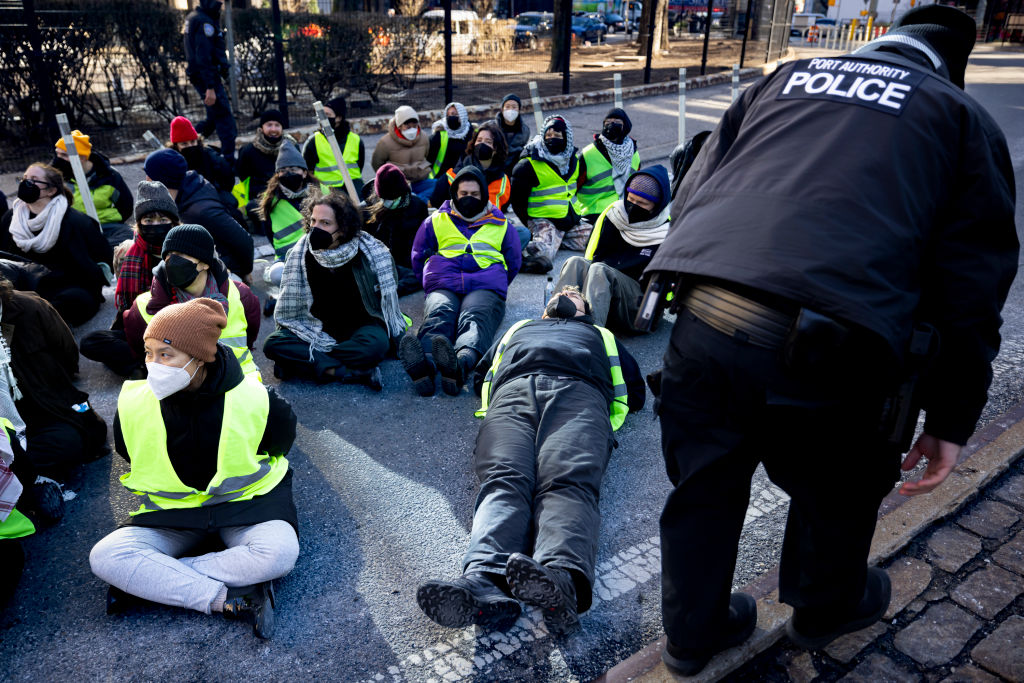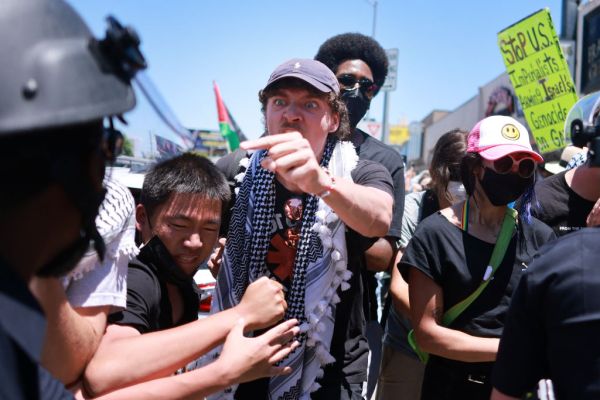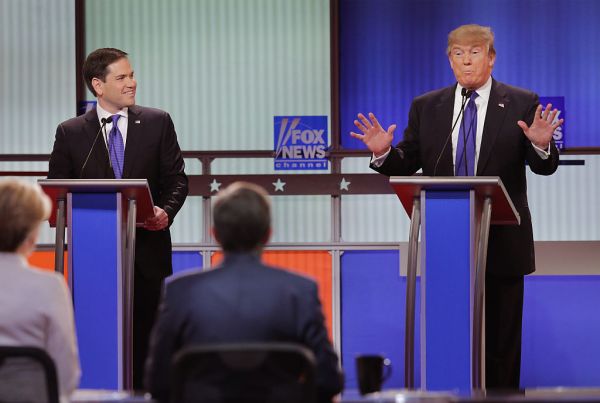On January 20, the official Twitter account for Ronald Reagan Washington National Airport (DCA) warned that passengers might be delayed “due to a group in vehicles exercising first amendment rights in roadway,” prompting a backlash from readers and a Community Note.
The delays were caused by at least six vehicles driving slowly on the roads approaching the airport, many of which flew Palestinian flags out of windows and sunroofs.
The blocking of public roadways is not protected by the First Amendment, however, and restrictions on such activity by state and federal authorities is generally considered constitutional.
While the First Amendment protects a wide range of free speech activities, including the rights to assemble and protest, the Supreme Court has long recognized the government’s right to restrict speech in certain circumstances. “Generally speaking, the government may impose content-neutral restrictions on the time, place, and manner of expression, so long as they are narrowly tailored to a substantial government interest,” Eugene Volokh, a professor of law at UCLA and First Amendment expert, told The Dispatch Fact Check.
So, while the state of Virginia, where DCA is located, could not constitutionally restrict demonstrations in roadways only for pro-Palestinian protests, it is fully constitutional for it to restrict the blocking of roadways in general. In fact, Virginia does just this: The state has laws against both purposefully impeding the progress of vehicles on highways and the obstruction of free passage of others.
“Courts have consistently found that there’s a substantial interest in allowing people to get around from place to place and to use the U.S. roadways for the purpose they were designed for, which is to have people go from place A to place B,” Volokh explained. “The government is entitled to protect that and limits—in fact has basically a presumptive prohibition on—demonstrations on public streets.”
Arrest is a common outcome across the U.S. for individuals protesting in public roadways. On January 9, 2024, more than 300 people were arrested for blocking roads and bridges in New York City during a pro-Palestinian protest, and three climate protesters were arrested for blocking lanes on the George Washington Memorial Parkway in April 2023. “Nobody has a right to block other people’s ability to get where they’re going,” Volokh said.
If you have a claim you would like to see us fact check, please send us an email at factcheck@thedispatch.com. If you would like to suggest a correction to this piece or any other Dispatch article, please email corrections@thedispatch.com.









Please note that we at The Dispatch hold ourselves, our work, and our commenters to a higher standard than other places on the internet. We welcome comments that foster genuine debate or discussion—including comments critical of us or our work—but responses that include ad hominem attacks on fellow Dispatch members or are intended to stoke fear and anger may be moderated.